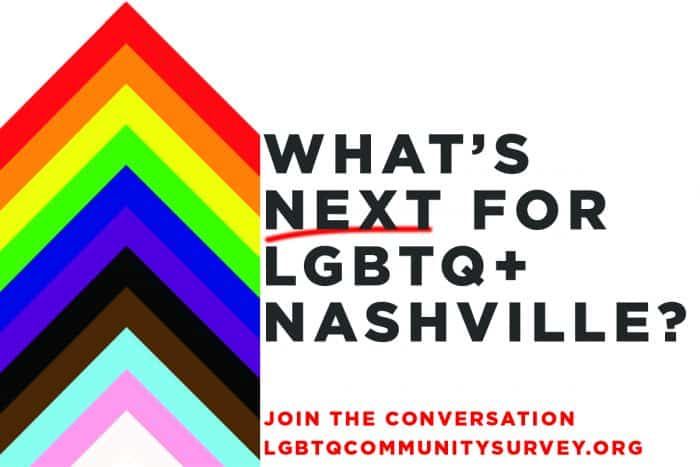NASHVILLE PRIDE RELEASES FINDINGS FROM LGBTQIA+ COMMUNITY VISIONING PROJECT
Nashville Pride, an organization focused on celebrating LGBTQIA+ life and culture in Middle Tennessee has released its’ Nashville + Middle TennesseeLGBTQIA+ Community Visioning Project report today, culminating nearly seven-months of research. This is the first survey and research project of its kind and the first region-wide survey on LGBTQIA+ people in nearly a decade. Community members shared their views about life in the region, and their desire for the future of the community through a series of public broad group conversations, identity-specific, and small group conversations as well as an online public survey.
Feedback from the conversations and public survey were distilled and analyzed to develop a series of recommendations to ensure the LGBTQIA+ community can thrive. Top line recommendations from community members were a call to ensure more for unity within the movement to work together for equality and equity throughout the region, state, and nation. The call for unity is directly tied into a second top-line recommendation in which over 84% of participants indicated that Nashville and Middle Tennessee needs to establish a safe and centralized space that is accessible to all of those in our community, including those most marginalized.
A series of secondary recommendations also provide insights into select sub-populations throughout the region, including LGBTQIA+ young adults and older adults. In both cases, an overwhelming number of participants shared that dedicated programming for these communities is an absolute necessity for the region moving forward.
LGBTQIA+ older adults, commonly referred to as the Stonewall Generation, face a number of challenges that come with aging with dignity. From a lack of companionship and the feeling of isolation to finding a welcoming and affirming housing for later in life are top concerns for identifying adults over the age of 50 in our community, revealed through the Community Visioning Project. As for LGBTQIA+ young adults in our region, they acknowledged persistent challenges to their safety, success, and opportunity. Their desire for a community space was related to the express need for job training, mentorship, safe and sober social activities, and more educational opportunities.
Understanding LGBTQIA+ people also comes with understanding their complex history of health disparities linked to stigma, discrimination, and the denial of civil and human rights. While there has been a significant amount of work done in our region and nationwide to combat the scourge of HIV/AIDS in our region, community members are recommending the development of a comprehensive and publicly available health navigation program. Such a program would assist community members in finding access to affirming and welcoming care, navigate the complexities of health insurance, the open marketplace, and the types of services that exist, including affirming mental healthcare and preventative care.
Upon the completion of this project, President of Nashville Pride, Paula Foster shared, “The Nashville + Middle Tennessee LGBTQIA+ Community Visioning Project allowed for shared dialogue between many different groups throughout our region. These discussions have allowed us to see where we are as a community, hear specifically what the needs in our community are, and where we need to move forward to ensure we don’t leave anyone behind.”
The Nashville + Middle Tennessee LGBTQIA+ Community Visioning Project report in totality is available online at nashvillepride.org/cvp.
The Nashville + Middle Tennessee LGBTQIA+ Community Visioning Project was built on a data-driven model to determine the needs of the region. In the weeks ahead, Nashville Pride is working to convene partnerships with organizations throughout the region to develop a collective impact model that addresses the top line and secondary recommendations from the report.
Involvement and support from a number of community stakeholders contributed to survey development and data analysis including: Nashville LGBT Chamber of Commerce, Nashville Black Pride, the Metro Human Relations Commission, Vanderbilt University Medical Center LGBTQ Health, and PFLAG Nashville.
